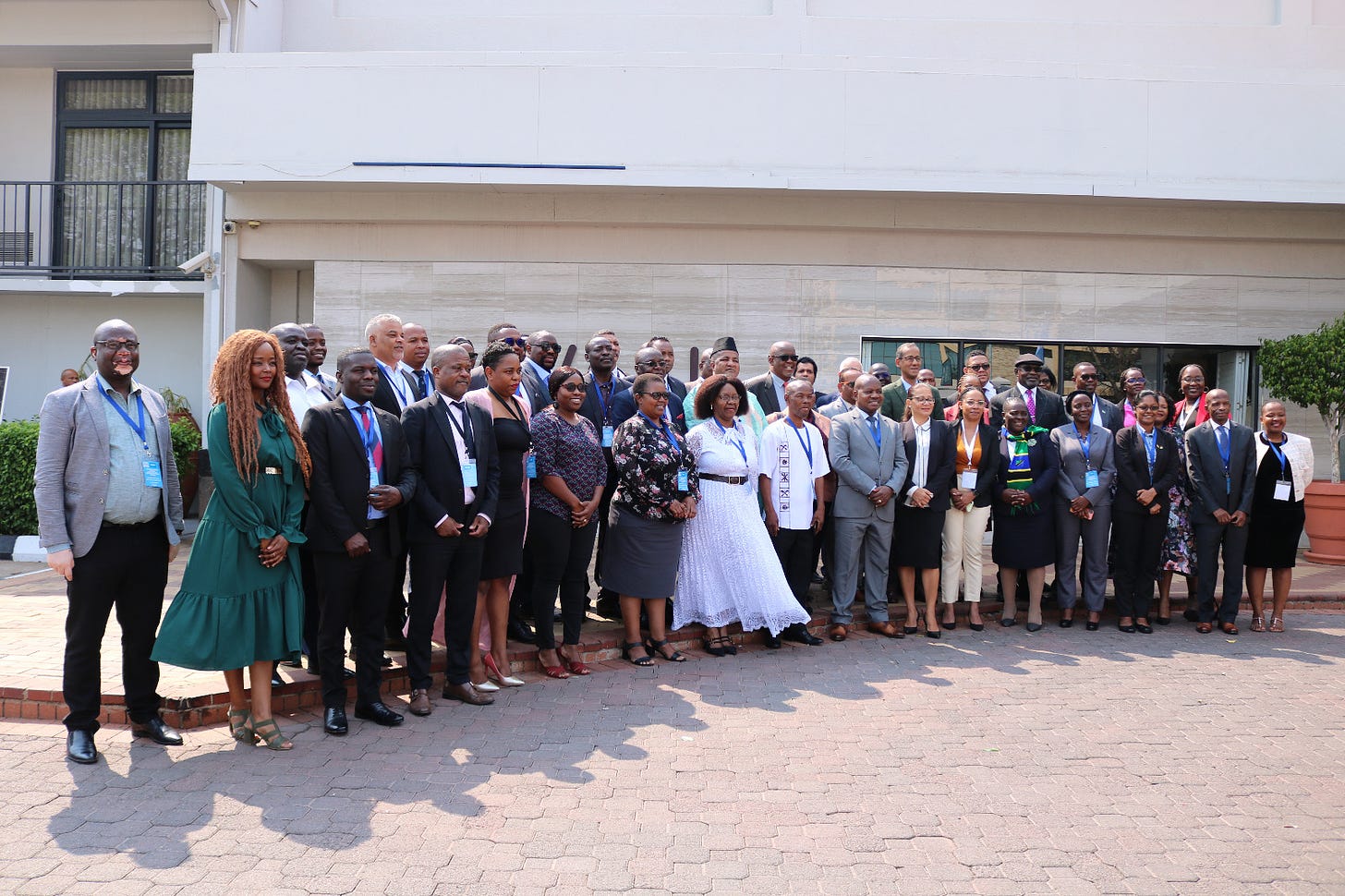African Group of Negotiators Urges Greater Involvement of Legislators in Climate Action
Botswana's acting minister of environment and tourism, Mabuse Pule, highlighted the challenges climate change presents for legislators.
Gaborone, Botswana - The Chair of the African Group of Negotiators on Climate Change (AGN), Ephraim Shitima, has called upon African countries to implement measures that encourage the active participation of legislators in climate action, writes Temwa Mhone.
Shitima made this appeal during a Southern African Regional Parliamentary meeting on climate change held in Gaborone, Botswana.
He emphasised the crucial role parliaments play in policymaking and implementation, particularly through their legislative and oversight mandates, such as approving and monitoring national budgets.
He stated, "Under the Paris Agreement, parties have made commitments through Nationally Determined Contributions (NDCs). These national commitments require resources, and our Parliamentarians are critical as they not only approve national budgets but also provide the oversight role of monitoring budget performance and implementation."
Shitima highlighted the importance of lawmakers across the continent being actively involved in climate processes, noting the AGN's appreciation of partners like AGNES for engaging parliamentarians and encouraging other partners to follow suit.
George Wamukoya, the team lead of the African Group of Negotiators Experts Support (AGNES), pointed out that despite their critical role, African parliaments are generally ill-prepared to effectively participate and oversee the implementation of climate response actions.
Wamukoya explained, "While legislation plays a crucial role in capturing political momentum and establishing strong systems for delivering national and international climate commitments, only a few African countries have relevant climate change legislation in place. In most countries, there is little alignment between the NDCs and national budgets, despite many countries indicating in their NDCs a commitment to domestic financing for NDC implementation."
He emphasized that AGNES has been organizing regional parliamentary meetings to engage lawmakers and raise awareness of their crucial role in supporting climate action at various levels.
Botswana's acting minister of environment and tourism, Mabuse Pule, highlighted the challenges climate change presents for legislators.
He emphasized the need for climate change legislation to be part of a broader policy framework supporting equitable, sustainable, and inclusive development.
Balázs Horváth, the United Nations Development Programme (UNDP) Resident Representative for Botswana, underscored the importance of Africa's unified voice as the continent prepares for COP28.
He noted the significance of articulating a common African stance at COP28 and advocating for the allocation of responsibilities and financing for the transition to a net-zero world based on each country's historical greenhouse gas emissions.
In recent years, international responses to climate change have become increasingly complex, necessitating countries to prepare, communicate, and maintain a five-year cycle of nationally determined contributions (NDCs) aligned with their long-term climate-resilient development strategies.



